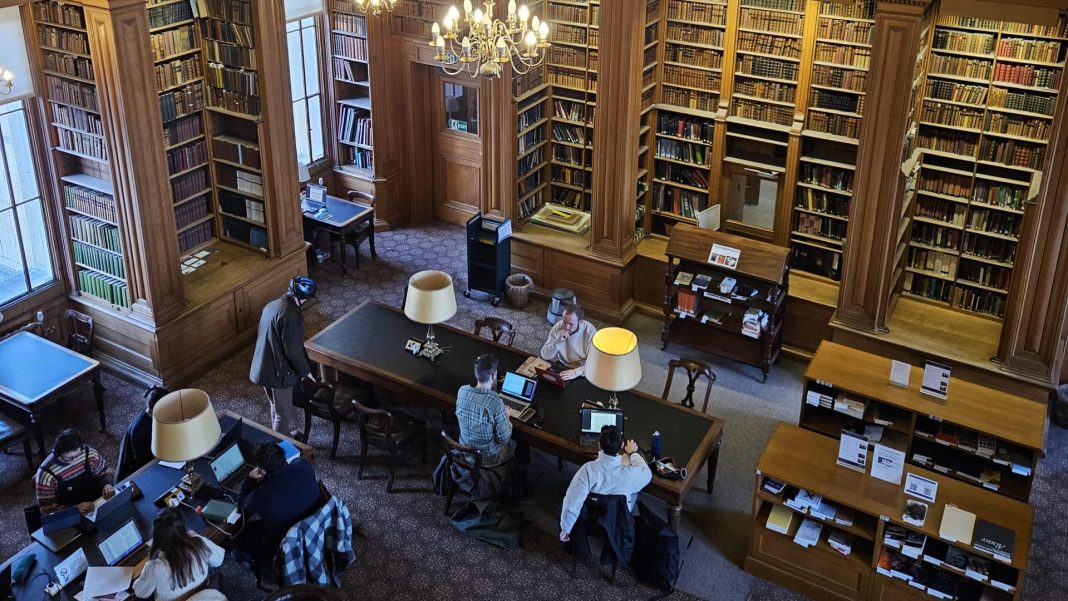Elite college students can’t read. The university wage premium has significantly declined. The young are unable to fulfil the requirements of an intensive academic degree, and even if they can, the job market doesn’t want them to. So they shouldn’t bother. So goes the story.
These arguments are constantly made, splashing across the pages of nationals and even this very newspaper. Spending three years studying a degree – especially a humanities degree – is said to be a frivolous waste of time, money, and resources. The expansion of universities has supposedly distorted the supply of skilled labour and created a foolish social pressure to study rather than do something practical. Studying archaeology and classics are indulgences that do nothing to help the world; in fact, they are breeding grounds for champagne socialists. Even defenders of the humanities rely on the instrumental value of degrees like philosophy, law, and literature, which are needed to keep society going.
In a world which is – and always has been – plagued with suffering, it’s easy to think of an arts degree as nothing more than a fruitless pleasure. But these arguments – and the endless anti-intellectual discourse that plagues all sides of the political spectrum – overlook a simple response: that education and academic study just are intrinsically valuable. This is a point which far too many people are scared to make. When someone dares defend the idea that every young person should have a right to further study they are bludgeoned by depressing economic statistics. The million strains on government budgets makes squeezing universities appear to be a necessity. The response has to be that there really is more to life than just labour market value.
The Economist, ever a bastion of sound thinking, cautions that “students … may not be picking the right subjects”. This is absurd. Students might not be choosing degrees that will maximise future earnings, or fill the exact requirements of the jobs market, but nor should they be. The ‘rightness’ of a subject is not determined by its potential for individual gain; academia is pursued as an end in itself. Studying allows humans to think beyond themselves, provoke and challenge others, and makes a life worth living – it should not be pursued solely for pecuniary gain, but because it is, really, something essential to humanity.
Yet many seem intent on clinging onto an atavistic notion that all humans are for is ‘work work work’; that all universities are for is to equip students with ‘skills for the future’. This is intolerably reductive. Focusing solely on the functional value of studying is inevitably going to make them look superfluous or expendable. But we shouldn’t lose sight of the bigger picture. The world is a better place when more people have read more, thought more, argued more. Not just because these people can then go on to do good things – but just from that fact alone. The chance to elevate the mind is a privilege which we, as students, are immensely lucky to have received – and not just because it makes us more employable, but because getting a glimpse of the wonders (and horrors) of the world, which each subject does in its own way, makes a life immeasurably richer.
This is how we must reject the crusades against universities, against the cries that students are selfishly enriching themselves. Knowledge and thinking strengthen the mind; it broadens thought; it brings joy. This good has to be balanced against others, of course, and the world is awash with moral and economic imperatives which need to be answered. Yet the claim that three years of study are wasted – are gluttonous – has to be rejected. People cannot simply be cogs in an ever-larger machine; otherwise, there is no purpose to anything. If everyone is simply an instrument to ensuring that supply meets demand, that they are the best possible tool to be used by whichever company needs them, then we have overlooked something essential to humanity; and the world which we are left with may not be worth living in.


